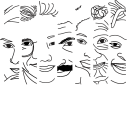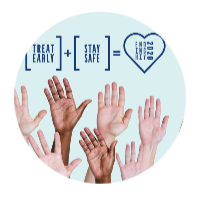The joint campaign with Pozhet NSW will use Facebook to promote HIV Home Testing for earlier diagnosis
The Multicultural HIV and Hepatitis Service (MHAHS) will launch a social media campaign to promote HIV home testing next week.
The Do you need a HIV Test? campaign will encourage people from diverse backgrounds to order their HIV home testing kit online and reduce their risk of late diagnosis.
At the centre of the campaign is an animation video which shows how to order the free self-sampling HIV testing kit online, how to use the kit to collect a small blood sample and send it away for testing.
The campaign is part of our effort to raise awareness of HIV testing among diverse communities and prevent late diagnosis, according to Barbara Luisi, manager of the MHAHS.
“Our campaign shows how easy it is to order the free home testing kit online and do the test in the privacy of your home. The test is confidential and you don’t have to see a doctor or go to a clinic.
HIV remains a public health concern in Australia with an estimated 26,444 people living with HIV in Australia in 2016. Nearly one in ten Australians living with HIV are unaware they have the virus and may be unknowingly passing on the virus to others.
The HIV home testing kit, Dried Blood Spot HIV Test (DBS) can be ordered online at http://www.hivtest.health.nsw.gov.au.
Visit the MHAHS at www.facebook.com/TheMHAHS
The Multicultural HIV and Hepatitis Service (MHAHS) will launch a social media campaign to promote HIV home testing next week.
The Do you need a HIV Test? campaign will encourage people from diverse backgrounds to order their HIV home testing kit online and reduce their risk of late diagnosis.
At the centre of the campaign is an animation video which shows how to order the free self-sampling HIV testing kit online, how to use the kit to collect a small blood sample and send it away for testing.
The campaign is part of our effort to raise awareness of HIV testing among diverse communities and prevent late diagnosis, according to Barbara Luisi, manager of the MHAHS.
“Our campaign shows how easy it is to order the free home testing kit online and do the test in the privacy of your home. The test is confidential and you don’t have to see a doctor or go to a clinic.
HIV remains a public health concern in Australia with an estimated 26,444 people living with HIV in Australia in 2016. Nearly one in ten Australians living with HIV are unaware they have the virus and may be unknowingly passing on the virus to others.
The HIV home testing kit, Dried Blood Spot HIV Test (DBS) can be ordered online at http://www.hivtest.health.nsw.gov.au.
Visit the MHAHS at www.facebook.com/TheMHAHS




